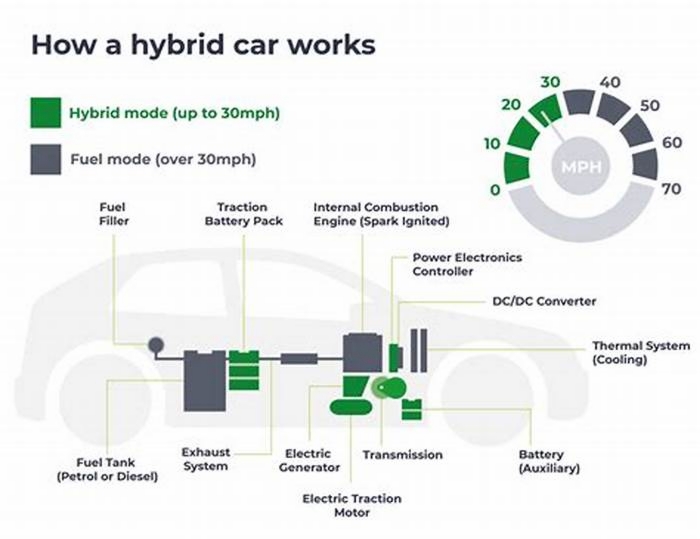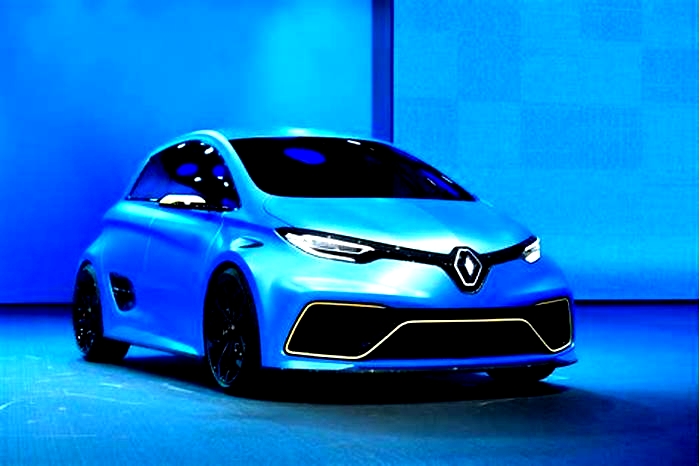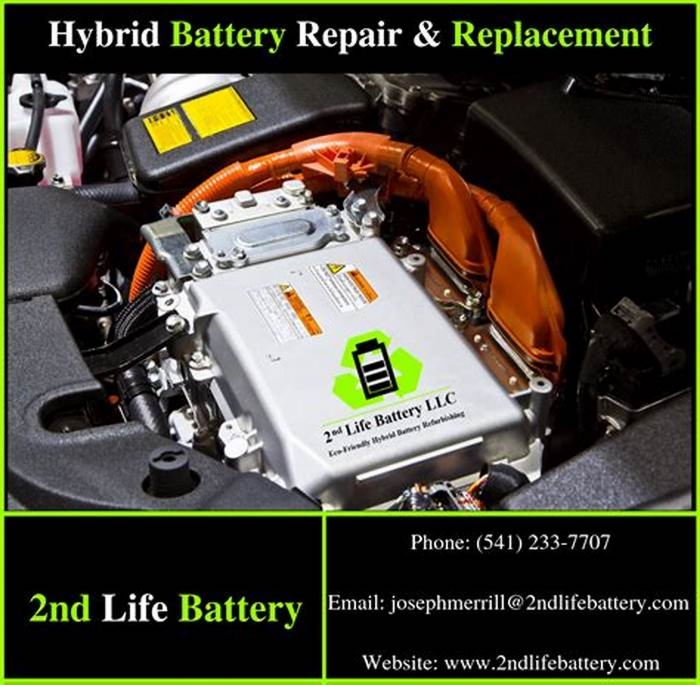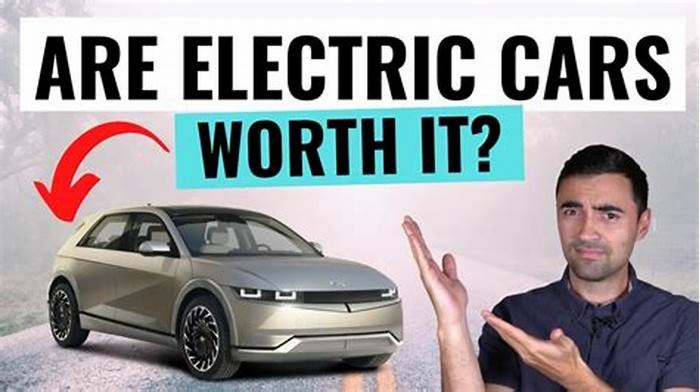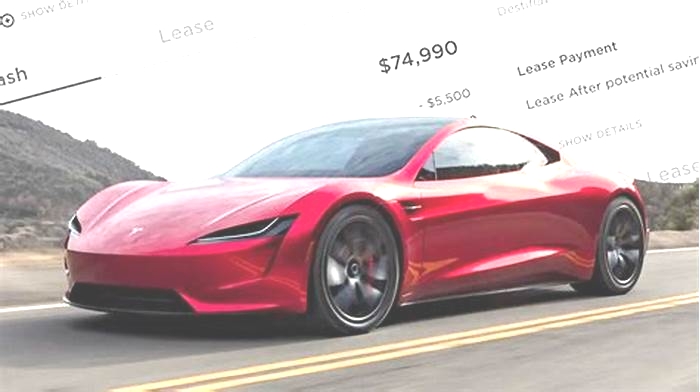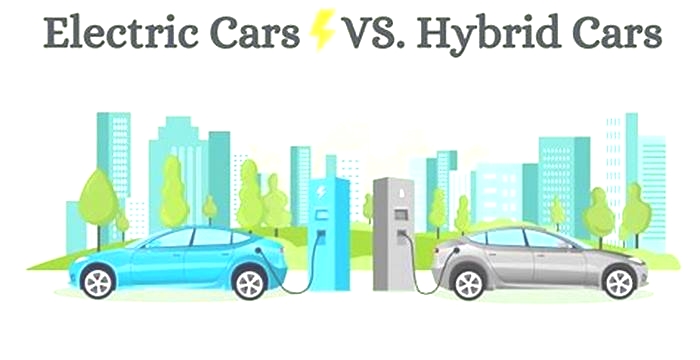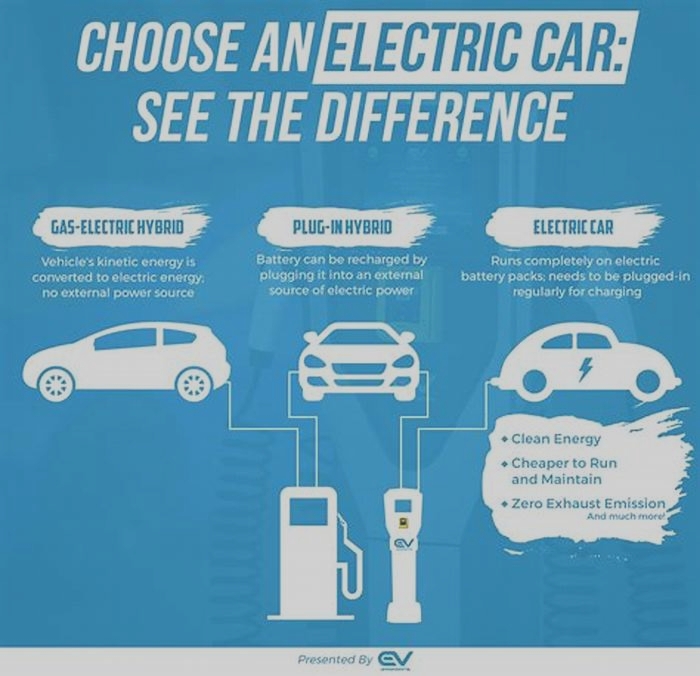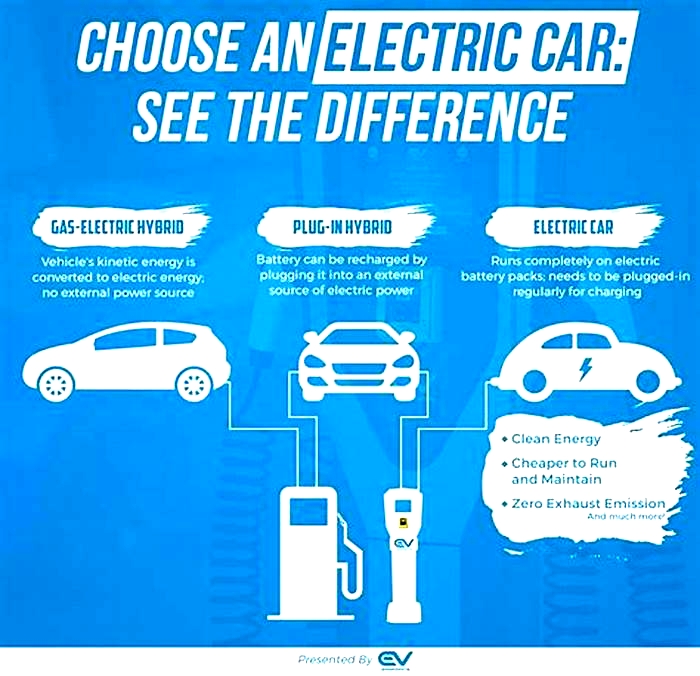Is it worth it to buy a hybrid SUV
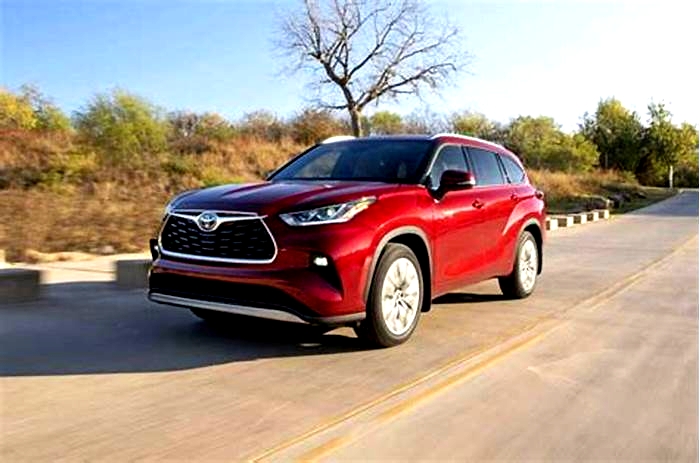
Are Hybrid SUVs Worth It?
Hybrid SUVs are a popular choice amongst customers because of their excellent mileage and saving in operational costs. Moreover, with enhanced federal government requirements to protect the environment, automakers launch hybrid models to fulfill the EPA fuel economies.
Are Hybrid SUVs Worth It? Hybrid SUVs are a good option in the long run by saving operational costs. Moreover, they have fewer CO2 emissions resulting in government incentives for environmentally friendly operations. Hybrid SUVs are also reliable and have comfortable rides due to their noise-free operation. However, they require specialized maintenance skills because of hybrid systems. Moreover, they have a higher initial price and poor towing and load-hauling specifications.
This article will describe the pros and cons of buying and operating a hybrid SUV. In addition, we will discuss all aspects affecting its cost over its operational cycle and other factors that help determine its potential as a passenger vehicle.
Why are Hybrid SUVs worth it?
Hybrid SUVs have many benefits over their counterparts with internal combustion engines (ICE). First, it helps the buyers to have a clearer picture of the situation, assisting them in selecting it as their vehicle of use.
Good mileage
The hindrance to the popularity of hybrid SUVs was the expensive batteries and their lesser charge storage capacity. As a result, they have 3-4 mpg better fuel economy in combined highway and city areas than the same models with IC engines only.
This saving factor increases to 6-7 mpg in city areas where you drive slower and only the electric motor operates to run the vehicle.
If you are an office-going person who travels 50-100 miles daily on busy roads, it will save you a few hundred dollars per annum in fuel costs.
Discounted insurance
With the increasing popularity of hybrid vehicles, insurance companies offer discounted offers for insurance premiums. The few possible reasons are safety records and the enhanced reliability of such models.
Moreover, it also depends on the model and its year of manufacturing. Few vehicles have a good track record regarding road safety and major parts failures, and you will get a reasonable insurance rate from the company.
In comparison, lesser-known models will cause you to pay more insurance due to higher initial costs and a lack of data regarding average repair costs per annum.
Government incentives
Government offers discounts on taxes for buying all-electric or plug-in hybrid vehicles. For example, the US federal government has announced tax credits of up to $7500 depending on the vehicles initial cost.
For example, the 2021 Ford Escape is a compact crossover plug-in hybrid, and it has a total tax credit limit of $6500-$7500 depending on its price according to the options available. Another example is the 2022 Subaru Crosstrek Hybrid SUV with a tax discount of $4500-$4600.
Regenerative braking
These vehicles use a mechanism known as regenerative braking to slow down or stop them when the driver applies brakes or releases foot from the accelerator pedal.
The vehicles motor acts as a generator and uses its moving kinetic energy to charge the batteries during the process. This phenomenon saves energy lost during braking in terms of friction and increases the life of brake parts, and therefore these SUVs are better in the rain.
Brakes tend to last longer than conventional models. Therefore, you will save a few hundred dollars and your time spent doing the said routine maintenance job. It will also save fuel costs as the engine has to work less to charge the batteries.
Environmental protection
These are good for the environment due to less fuel consumption and reduced amounts of carbon emissions. You can even make the emissions zero by traveling for shorter distances at slower speeds and using renewable energy sources to charge the vehicles.
Therefore, it is the most significant motive behind the government incentives and infrastructure development to promote and popularize hybrid or electric models.
Hybrid vehicles act as a bridge between true electric and internal combustion engines using fossil fuels. They are a symbol of transition from one type to another.
Therefore, most automakers are discontinuing their diesel and gasoline-powered models and introducing hybrid models as a stepping stone. Standard SUVs can damage the environment, but by buying hybrid vehicles, you are serving the great cause of protecting the environment.
Better resale value
Various US states have put bans and extra taxes on diesel and gasoline-powered models. Moreover, there is a continuous increase in gasoline prices with time.
Due to their increased demand, they have a good resale value. It gives you an edge and eases to decide to buy it as you can sell it by recovering your investment if you dont like its features.
Government incentives and permissions to drive on high occupancy vehicle (HOV) lanes are also factors for the high resale value. In times of peak traffic hours, it is a practical option to drive on those specific lanes to travel faster.
Reliable vehicles
SUVs are highly reliable and have comparable performance with gasoline or diesel-powered models.
But that is not a serious concern as most manufacturers offer warranties of 8-10 years and 80,000-100,000 miles of driving range. That is far more than conventional internal combustion engines and their systems.
For example, Toyota offers a 7-9 years warranty for its hybrid version, including replacing battery packs or 95,000-105,000 miles of drive, whichever comes first. Therefore, you can purchase them without fear of battery replacement as the manufacturer has got your back to do this for you.
Comfortable ride
These latest models use an electric motor and an engine to drive the wheels. Electric motors have a quieter operation due to lesser mechanical movements and therefore offer a smoother ride.
Moreover, manufacturers use sophisticated parts to get the same performance with better fuel economy. Moreover, transmissions are also of innovative designs for smooth shifts for both electric motor and engine. It results in an overall comfortable ride with a noise-free operation for the driver and passengers.
Time-saving
Due to the excellent fuel average, you need to make fewer trips to gas stations resulting in more available time for you and your family.
Moreover, due to fewer mechanical parts, you will need less time in the workshop for its regular preventive maintenance tasks, including oil change, filter change, and brake pads replacement.
Access to HOV lanes for plug-in SUVs is also another vital feature resulting in time-saving. You will be able to drive quickly on these special lanes in peak traffic hours and crowded areas.
Why you should not buy hybrid SUVs?
Despite numerous benefits and popularity of hybrid SUVs, they have few drawbacks compared to IC engine models. These are the factors responsible for drivers sticking towards conventional fossil fuel-powered vehicles.
Specialized maintenance
These vehicles have both electric and mechanical systems to power their drivetrain. Therefore, you need to find a mechanic having specialized skills to carry out the maintenance jobs efficiently. In the presence of fewer expert mechanics, you will end up paying higher labor costs per hour.
Moreover, in case of damage to any part, their replacement is pretty much expensive. Despite being highly reliable, models older than 10 years need major repair issues involving thousands of dollars for spares if any system needs replacement.
Higher initial price
SUVs have different systems and parts, including an electric motor, battery pack, powertrain to cater to the engine and electric motor, and extra wiring. Therefore they have a higher initial cost of $3000-$10,000 more than their conventional counterparts.
The significant increase in the price is due to the increased strength of the frame to manage the battery pack, the cost of the battery pack itself, and its cooling system.
All these components are responsible for the increase in the overall initial cost of the vehicle. Higher initial costs also result in higher insurance prices for some models.
Battery replacement
Manufacturers offer exceptional warranties for several years, including the replacement of batteries during the period. But if you buy a used model with an expired maintenance period and need to replace the battery pack, it will cost you a considerable sum of money.
For example, the average cost of its replacement is $5000-$7000. Furthermore, it can tend to increase depending on the particular model, type, and charge capacity of the pack.
Therefore, even after 10 years, its replacement will eliminate all the savings you made in fuel costs, and it is the potential factor keeping drivers away from purchasing them.
Lower performance
SUVs have comparatively higher weights due to the inclusion of battery packs. Moreover, designers make each part as energy efficient as possible to improve the fuel economy that is the main plus point.
However, it results in a lower performance like speed, acceleration, and other parameters. Therefore, despite few models with higher performance indicators, most of them cannot compete with their contemporaries having gasoline or diesel-powered engines available with increased power and torque.
Higher fuel consumption in cold weather
Batteries used in hybrid SUVs provide energy to the electric motors by the process of a chemical reaction. Therefore, they need the optimal temperature to provide total energy. In icy conditions, they will take time to warm up and provide ample amounts of power.
Therefore, vehicles rely on the engine to fulfill power requirements. Consequently, you will not benefit from batteries to improve the fuel economy in freezing temperatures.
However, the latest models have battery packs temperature control systems, enabling them to provide power as soon as required after starting the engine.
Moreover, while driving on the highway at higher speeds, the internal combustion engine remains active most of the time. Therefore, its miles per gallon rating remains lower in such conditions and has the same emissions as conventional models.
Poor towing and hauling specifications
Both the electric motor and an internal combustion engine provide the total power to the SUV. Therefore, they will not give the high combined torque required for towing and hauling applications.
However, few latest models have significant towing capacities of 4,000-5,000 lbs due to higher engine ratings.
7 Examples of Hybrid SUVs available in 2021
There are several hybrid SUVs available from leading auto manufacturers, and their numbers are increasing with time.
Here is a table showing a few models from various manufacturers, their prices, and their ICE counterparts. These prices are for base versions and can vary with trim levels and the addition of other packages.
Hybrid SUVs Model | Base Price | Price of its Conventional Model |
Ford Explorer | $49,000-$50,000 | $32,000-$34,000 |
Ford Escape | $28,000-$29,000 | $24,000-$25,000 |
Toyota Highlander | $38,000-$39,000 | $34,000-$35,000 |
Toyota Rav4 | $28,000-$29,000 | $26,000-$27,000 |
Kia Sorento | $33,000-$34,000 | $30,000-$31,000 |
Hyundai Santa Fe | $33,000-$34,000 | $27,000-$28,000 |
Honda CR-V | $30,000-$31,000 | $26,000-$27,000 |
Conclusion
Hybrid SUVs have advantages, including better fuel economy in city areas, prolonged warranties from manufacturers including all parts, low emissions, and tax credits from the government.
They have few downsides, including higher initial costs, complex maintenance, and decreased performance with increased weight. It is up to the customer to buy them according to their preference and intended usage.
Related Articles:
Is it always hard to park SUVs?
Are SUVs For Soccer Moms?
Are Hybrids Worth It? The Answer Will Surprise You
THIS POST MAY CONTAIN AFFILIATE LINKS. PLEASE SEE MY DISCLOSURES. FOR MORE INFORMATION.
Are hybrids worth it for saving on gas expenses?
If youre considering purchasing a hybrid car with this goal in mind, youre not alone.
However, before diving into the world of hybrid vehicles and envisioning the savings, its crucial to recognize that the initial investment might lead to higher overall spending.
Although opting for a hybrid can decrease your fuel costs, its essential to acknowledge that your overall expenses could rise sometimes significantly.
To aid in navigating these financial considerations, heres an in-depth examination of which hybrid models offer substantial savings and whether traditional gas-powered counterparts might be a more financially prudent option.
KEY POINTS
While hybrids will offer you gas savings, the higher purchase prices results in many buyers not actually saving any moneyIn many cases, you wont begin to save money until at least year 5A better option is to buy an electric car, or take steps to lower your fuel costsAre Hybrids Worth It? A Detailed Look To Make a Smart Financial Choice
Do Hybrid Cars Save You Money?
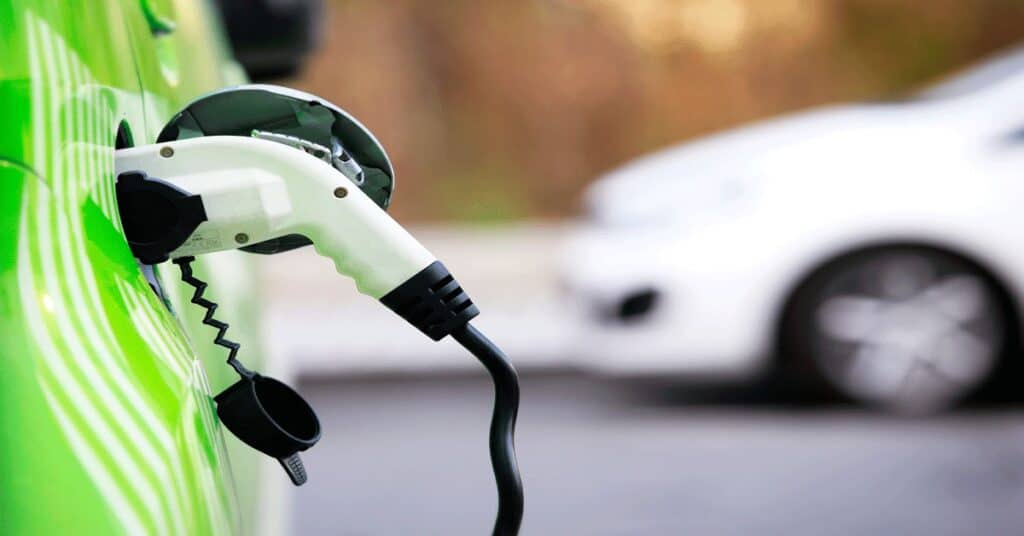
To know if a hybrid car will save you money, you must look at all the costs involved when owning a car, not only the savings from buying less gas.
We conducted a detailed analysis of car ownership, covering the following expenses:
- Purchase price
- Maintenance costs
- Insurance costs
- Gas savings
- Purchase incentives
- Ownership benefits
Then, we crunched the numbers to see which hybrids are intelligent buys.
Some winners include the Toyota Camry, Honda CR-V, Lexus NX 350h, and the Toyota Highlander.
Before we dive into the details for each vehicle we analyzed, lets take a quick look at how the above expenses impact the hybrid version compared to the gas version.
Purchase Price

The amount you pay for a car significantly impacts whether youll lower your car expenses.
And since most hybrid vehicles cost more than the gas version, this is why so many end up not saving you any money at all.
According to new car prices for 2024, the average price of a hybrid is $1,300 more than a conventional car.
For SUVs, a hybrid vehicle has an initial price premium of $2,969 compared to a gas-powered SUV.
As a result, you need to save more than this difference in fuel costs to come out ahead.
Maintenance Costs
Maintenance costs vary by make and model, and, as a result, you cannot say that all hybrids cost less to maintain.
For example, many people will argue that since hybrids use regenerative braking, youll pay less for repairs because the brake pads wont need replacing as often.
While saving on brake replacement, you must remember that not all mechanics work on hybrid cars.
So, while you might currently use an independent mechanic, with a hybrid, you might have to take it to the dealership for service, which costs more.
Another major concern many potential hybrid owners have is with the hybrid battery.
A hybrid battery replacement can cost between $2,000 and $5,000.
Many fear the battery pack will only last a certain length of time or a number of miles.
The truth is that car manufacturers build hybrid car batteries to last the vehicles life.
Many manufacturers offer standard warranties on hybrid batteries that last up to 10 years and cover 100,000 miles.
This warranty is much longer than the warranty most conventional car engines have.
There are even stories of hybridtaxi cars whose batteries last more than 300,000 miles!
Insurance Costs
Theres a belief that the cost to insure a hybrid is much less than an internal combustion engine version.
Many see a typical hybrid driver as someone whos not aggressive.
Additionally, some insurance companies offer discounted rates to owners of hybrids.
However, some insurance companies charge more to own a hybrid.
This is because they see a costlier car in terms of repair.
Not only do they have to cover the traditional internal combustion engine, but they also have to cover the hybrid setup.
When speaking to Allstate agent Anthony Perretta, we discovered some hybrids cost more than the gas-only version.
For example, the 2023 Volvo XC90 Recharge Plus plug-in hybrid costs $158 more to insure versus the non-hybrid version.
The same holds with the Toyota Highlander, with the hybrid costing $101 more annually.
Your best bet is to ask your insurance carrier what the annual premium would be and then compare that to another insurance company.
Insurifyis the best option for comparing auto insurance rates.
You get multiple quotes in seconds, and theyll make the switch for you.
Average users pay $500 less per year on car insurance!
Get Multiple Insurance Quotes
InsurifyWith Insurify, you get multiple insurance quotes, fast and easy. The average savings is close to $500 a year. Click the link below to see how much money you will save with Insurify!
Click Here To Save MoneyRead My ReviewGas Savings
Fuel savings is where hybrids shine, using less fuel to operate.
To determine if there are any savings here, you need to look at the cost of fuel and the number of miles you drive your car.
Assuming gas costs $3 for regular, and you drive 15,000 miles annually, if you get 31 miles per gallon combined highway and city driving, youll spend $1,452 annually on fill-ups.
If you can get 47 miles per gallon combined, youll spend $957 annually.
Heres the calculation for you to do for any vehicle youre considering buying:
Step 1: Annual Miles Driven x Fuel Price = Cost of Fuel Per MileStep 2: Cost of Fuel Per Mile divided by Miles Per Gallon = Annual Cost of Gas
So, if you drive 15,000 per year, you multiply this by the fuel price of $3 to get 45,000, which is the cost of fuel per mile.
Then, you divide that number by the cars MPG gallon rating in this case, 31 to get an annual fuel cost of $1,452.
There are critical things to remember about this calculation.
First, the fewer miles you drive or the lower the gas price is, the less money youll save.
Using the same numbers but adjusting gas to $2 per gallon results in annual fuel costs of $967 (31 MPG) and $638 (47 MPG).
While youre still saving money, the difference was $495 in the first example. In the second example, it was $329.
Second, you have to account for the type of driving you do.
Typically, hybrids get much better fuel consumption in the city versus the highway compared to an internal combustion engine version.
If you only do short, stop-and-go trips, your savings will likely be much more.
This is why its critical for you to do the math to determine your actual fuel savings.
Purchase Incentives
The next thing to consider when determining if a hybrid is worth it is if there are any incentives when buying the car.
This is critical, as weve seen that the initial costs of a hybrid tend to be higher.
There are a few levels of incentives to look at.
The first is with the dealer or manufacturer.
Many times, dealers will offer cash back or rebates on various models.
Sometimes, the dealer or manufacturer will offer a discount to help sell more vehicles.
The hybrid may have a higher incentive, offsetting the higher purchase price.
The next area to look at is government tax credits.
In years past, the government offered a tax credit for any hybrid, but this is no longer the case.
Thecurrent tax lawfor hybrids allows for a credit when buying an electric or plug-in hybrid vehicle.
These tax incentives are anywhere from $2,500 up to $7,500.
Heres a great referenceto review.
Some states also offer a credit on your tax return, and some utility companies offer a rebate if you buy an all-electric vehicle or plug-in.
Again, most of these credits are on plug-in hybrids and pure electric vehicles only, but you should check to see if you qualify before buying.
Ownership Benefits
Owning a hybrid car has additional benefits that dont impact your wallet directly.
However, they are important to mention.
- With a hybrid, youll have more free time by not having to run to the gas station as frequently.
- With a hybrid, you could drive in the HOV lane, escaping traffic, saving time, and avoiding stress.
- You help the environment by having a smaller carbon footprint.
- Some companies allow hybrid owners special parking spots and other company perks.
Youll have to determine what, if any, of these factors play a role in owning a hybrid car.
While you cant put a monetary value on them, youll have to decide if not filling up as frequently will improve your life and if that happiness is worth it.
For example, if saving 15 minutes by not going to the gas station as often is a significant win for you, is it worth paying an extra $4,000 for a car?
Ownership Breakdown of Popular Hybrid Cars
Now its time to dig into the details of popular vehicles to see if the hybrid model will save you money compared to the traditional vehicle.
Data comes fromEdmunds Cost of Car Ownership data. (Please note the fuel costs fluctuate along with the price of gas, so the numbers I present below may differ from what Edmunds lists.)
2024 Toyota RAV4 Hybrid
The RAV4 has been a top-selling SUV for Toyota, so offering a hybrid option only makes sense.
The table below shows the 5-year cost to own for three versions: gas, hybrid, and plug-in.
| Car Model | Price | Annual Fuel Costs | Annual Insurance Costs | Annual Repair & Maintenance Costs | Five Year Ownership Cost |
|---|---|---|---|---|---|
| RAV4 Limited | $36,980 | $2,094 | $813 | $1,197 | $57,501 |
| RAV4 Hybrid Limited | $40,030 | $1,465 | $838 | $1,227 | $57,677 |
| RAV4 PRIME XSE | $47,560 | $1,543 | $813 | $1,252 | $65,602 |
The hybrid version costs you $176 more over five years compared to the gas version.
On an annual basis, you spend an extra $35.
While the hybrid does get better fuel economy, it is over $3,000 more to buy.
Plus, insurance and maintenance is higher as well.
Finally, while the plug-in version appears to be a poor choice, you have to factor in the $7,500 rebate, which brings the five-year cost down to $58,102, in line with the other models, but still not a smart move if your goal is to save money.
2024 Honda CR-V Hybrid
The story with the CR-V is similar.
After five years, you save $1,533, or $306 per year.
| Car Model | Price | Annual Fuel Costs | Annual Insurance Costs | Annual Repair & Maintenance Costs | Five Year Ownership Cost |
|---|---|---|---|---|---|
| CR-V EX | $32,010 | $2,020 | $718 | $1,129 | $51,346 |
| CR-V Sport Hybrid | $34,050 | $1,582 | $783 | $787 | $49,813 |
Again, both insurance and maintenance costs are higher with the hybrid.
If you want to come out ahead, you need to own this SUV for a while.
2024 Toyota Camry Hybrid
Switching over to a sedan, the Camry resembles the CR-V above.
| Car Model | Price | Annual Fuel Costs | Annual Insurance Costs | Annual Repair & Maintenance Costs | Five Year Ownership Cost |
|---|---|---|---|---|---|
| Camry LE | $26,420 | $1,838 | $811 | $747 | $43,398 |
| Camry LE Hybrid | $28,855 | $1,128 | $831 | $685 | $42,079 |
You have significant fuel savings along with cheaper maintenance that offset the higher price.
After five years, you save $1,319, or $263 a year, by buying the hybrid.
2024 Toyota Corolla Hybrid
The story is interesting with the Corolla.
Over five years, youll save with the hybrid, but only $634, or $127 per year.
| Car Model | Price | Annual Fuel Costs | Annual Insurance Costs | Annual Repair & Maintenance Costs | Five Year Ownership Cost |
|---|---|---|---|---|---|
| Corolla SE | $24,490 | $1,723 | $807 | $884 | $41,561 |
| Corolla Hybrid SE | $25,940 | $1,246 | $842 | $909 | $40,927 |
The biggest reasons for this is the higher price and repair and maintenance costs on the hybrid version, offsetting the annual savings on gas.
Toyota Highlander Hybrid
The Highlander Hybrid is a wise choice, mainly because of the gas savings.
Over five years, you save $1,488, or $297 annually.
| Car Model | Price | Annual Fuel Costs | Annual Insurance Costs | Annual Repair & Maintenance Costs | Five Year Ownership Cost |
|---|---|---|---|---|---|
| Highlander XLE | $42,420 | $2,442 | $760 | $1,244 | $64,654 |
| Highlander XLE Hybrid | $44,120 | $1,676 | $861 | $1,272 | $63,166 |
Insurance and maintenance are higher with the hybrid version, but the savings from better gas mileage are enough to offset this and the higher price.
2024 Ford Maverick Hybrid
There are few options for truck lovers when it comes to hybrids.
A popular model, the Ford Maverick, is a small truck that, over five years, costs as much as the hybrid.
| Car Model | Price | Annual Fuel Costs | Annual Insurance Costs | Annual Repair & Maintenance Costs | Five Year Ownership Cost |
|---|---|---|---|---|---|
| Maverick XLT | $26,315 | $1,531 | $849 | $1,069 | $43,560 |
| Maverick XLT Hybrid | $27,815 | $1,216 | $860 | $1,086 | $43,624 |
The biggest issue is that the higher buying cost offsets the reduced fuel costs.
2024 Kia Sportage Hybrid
Here is an example of a hybrid gone wrong.
Buying the hybrid costs you more money than the gas engine model.
| Car Model | Price | Annual Fuel Costs | Annual Insurance Costs | Annual Repair & Maintenance Costs | Five Year Ownership Cost |
|---|---|---|---|---|---|
| Sportage SX Prestige | $34,690 | $2,305 | $846 | $1,340 | $57,146 |
| Sportage SX Prestige Hybrid | $37,190 | $1,666 | $964 | $1,385 | $57,264 |
After five years, you pay an extra $118 to own the hybrid.
There simply isnt enough gas savings to overcome the higher price and insurance costs.
2024 Lexus NX 350h Hybrid
If you are into luxury SUVs, you cannot beat the Lexus NX 350h hybrid.
With close to an identical price to buy, its an easy way to save money.
Over five years, the massive fuel savings add up, allowing you to pocket $7,208 total, or $1,441 annually.
| Car Model | Price | Annual Fuel Costs | Annual Insurance Costs | Annual Repair & Maintenance Costs | Five Year Ownership Cost |
|---|---|---|---|---|---|
| NX350 | $44,365 | $2,778 | $882 | $2,120 | $73,264 |
| NX 350h Hybrid | $44,615 | $1,782 | $897 | $1,609 | $66,056 |
Adding Up the Results
After looking at the various vehicles, you save by opting for a hybrid.
But the savings is less than many people assume.
You must often keep the vehicle for at least five years, if not longer, to realize savings.
To increase your odds of saving when buying a hybrid, you need to do three things that are 100% in your control:
- Get the purchase price as low as possible.You need to find a great deal ornegotiate the priceof the hybrid as much as you can.
- Shop around for insurance.Dont stick with your insurer due to loyalty. Compare quotes and get the best rate with the best service.
- Find a mechanic.If you can find a reliable, independent mechanic, you can reduce the cost of repairs and maintenance. You should also take the time to learn how to care for your vehicle tokeep it running forever.
The lower you get these costs, the faster you realize savings, and the more youll save.
Here are two tools I recommend to help you out.
The first is Edmunds.
Using this service helps you see the price others are paying for the same model and configuration to avoid overpaying.
The second is Insurify.
Theyll give you free insurance quotes from multiple companies at once.
No more making numerous calls and spending hours of your time.
Fifteen minutes, and you have a handful of quotes to compare.
They even make switching effortless!
Plug-In Hybrid Vehicles

We must also consider plug-in hybrids (PHEVs) when discussing hybrid cars. (Note: this article wont debate fully electric vehicles.)
While most of the data I shared above is valid with a plug-in hybrid, you must consider electricity and how that affects your savings.
Buying a hybrid electric car is usually an intelligent financial choice for two reasons.
First, theres a federal tax credit of up to $7,500.
This credit can often make the price between a plug-in hybrid and a gas-powered car identical.
For example, lets look at the Toyota RAV4.
The internal combustion model starts at $36,980, and the plug-in version is $47,560.
When you apply the $7,500 credit to the electric car, the price drops to $40,060, but still nearly $3,000 more.
This purchase premium wipes out any gas savings, making it more expensive to own.
Is Buying a Toyota Prius a Smart Investment?
The Toyota Prius was the car that started the hybrid craze back in 1997.
I didnt include this vehicle in my analysis above as I was comparing the same make and model gas vs. hybrid.
Since the Prius doesnt have a gas-only version, I couldnt include it there.
But heres the latest information on the 2024 Toyota Prius.
Its not a smart investment.
Lets look at the numbers.
Below, I compare the 2024 Toyota Prius XLE to the Toyota Corolla XLE Hybrid and the Honda Civic EX.
I used these cars as theyre of similar size and features.
I had to use the gas version of the Civic since Honda doesnt have a hybrid version.
| Car Model | Price | Annual Fuel Costs | Annual Insurance Costs | Annual Repair & Maintenance Costs | Five Year Ownership Cost |
|---|---|---|---|---|---|
| Prius XLE | $31,395 | $1,125 | $793 | $1,121 | $46,588 |
| Corolla XLE Hybrid | $25,940 | $1,336 | $842 | $912 | $41,387 |
| Civic EX | $28,650 | $1,676 | $854 | $782 | $45,211 |
While the Prius costs the least in terms of gas, it has higher maintenance costs than the Corolla and the Civic.
It also costs more, offsetting the gas savings.
As a result, after five years, the Corolla is over $5,000 less expensive to own than the Prius.
Even the gas-only Civic is less expensive than the Prius.
Hybrid Break-Even Calculator
I provided you with the analysis of many popular hybrid models, but you might want to analyze another model.
If so, how do you do it?
For starters, you get the price of the model youre looking at.
Pick the trim level and configure the car exactly as you want.
In my analysis, I looked at the same trim level with no additional options to keep everything fair.
While configuring your vehicle, note its combined mpg rating; youll need this information shortly.
Once you have the purchase price, consider any incentives the dealer or manufacturer offers.
If you qualify for any, use them to reduce the price.
Next, its time to estimate the cost of gas.
I used thenational averageat the time of this writing.
Depending on where you live, this number could be higher or lower.
Now, estimate how many miles you drive your car in a year.
Most people fall between 12,000 and 15,000 miles.
Its time for some basic math.
Multiply the miles you drive by the cost of gas, then divide this number by the MPG.
If you estimate 15,000 driven, $4 gas, and an MPG of 30 for the gas version, your math looks like this:
15,000 x 4 = 60,00060,000 / 30 = $2,000
Do the same thing for the hybrid to get your annual fuel cost.
Next, call your insurance agent and get quotes on the models youre comparing.
Finally, look online for average maintenance costs.
As I mentioned before, I likeEdmunds.
The final step is to take the price and the annual cost of gas, insurance, and maintenance to get a one-year total.
This total is your first year of ownership cost.
To compare additional years, you want to take the cost of gas, insurance, and maintenance and multiply them by the year.
For a five-year estimate, multiply these numbers by 5.
Do this for as long as you plan to keep the vehicle to see if buying a hybrid will save you money.
If your analysis points you toward the direction of the gasoline-powered car, read my article onhow to save money on gas easily.
Advantages and Disadvantages of Hybrid Vehicles
Heres a summary of the important pros and cons of hybrid cars.
Advantages
- Gas savings:Hybrids offer increased fuel efficiency, saving owners on the cost of fuel.
- Eco-friendly:Hybrids are cleaner for the environment as they produce less CO2 emissions.
- Many hybrid models:Almost every car manufacturer offers hybrid versions of cars and SUVs.
Drawbacks
- Higher price:Most hybrids cost more, which offsets any savings from higher fuel economy.
- Worse than advertised fuel efficiency:With cold temperatures, the fuel economy of a hybrid is much lower than advertised, meaning you save less money.
- Limited options:While many hybrid vehicles exist, there are not as many hybrid truck options.
- Less cargo space:Many vehicles have less storage room because of the hybrid batteries.
Best Hybrid Cars
If you want to save the most money with a hybrid car, here are the best choices:
- Toyota Camry Hybrid (family sedan)
- Toyota Corolla Hybrid (compact sedan)
The five-year cost to own the Camry is $1,319 cheaper than the gas engine model.
For the Corolla, the five-year cost to own is $188 cheaper.
Sadly, most of the other models dont save you as much.
And, as seen above, the Corolla offers more savings than the Prius.
Best Hybrid SUVs
Heres a list of hybrid SUVs that will help you reduce your overall fuel costs, saving you money.
- Lexus NX 350h Hybrid
- Honda CR-V Hybrid
- Toyota Highlander Hybrid
Hands down, the Lexus is the best value for your money, costing you $7,208 less to own over five years.
The Highlander costs $2,484 less over five years, and the CR-V $1,540 less.
Why You Shouldnt Trust Other Best Hybrid Lists
If you visit any popular auto site or magazine, their best of list will look very different from mine.
This doesnt mean theyre right and Im wrong or vice versa.
The varying results are due to looking at different things.
Auto sites look at the gas mileage, ride quality, and extra amenities and compute these factors to determine if a vehicle is a good value.
I consider whether the vehicle will lower out-of-pocket costs and save you money.
You can have the most comfortable ride with all the bells and whistles, but none of this matters if your goal is to lower costs.
Or it doesnt matter as much as savings.
Frequently Asked Questions

What kinds of hybrid cars are there?
Most people lump hybrids into one single category.
But the reality is that four different types of hybrid vehicles are for sale.
Here are the different kinds you will come across.
- Parallel Hybrids:This is the most common type of hybrid. Regular hybrids use a combination of an electric motor and a gasoline engine to move the vehicle.
- Mild Hybrid Cars:These are also called micro-hybrid and light hybrid. These cars have a battery to give a boost to the gas engine as well as improve fuel efficiency. Many vehicles today are sold in this configuration but offer little savings.
- Plug-In Hybrids:Called PHEV cars for short, these are a combination of electric vehicles and a hybrid. You must plug these vehicles into an electrical outlet to charge the electric motors. Some of these also have a gasoline engine to increase the range on longer drives.
- Series Hybrids:Also known as Range Extended Hybrids, these cars are powered by a battery pack and use gasoline to recharge the battery so the driver can continue to drive. You must plug these vehicles in as well.
Are hybrid cars reliable long-term?
Yes, hybrids are reliable.
Hybrids are just as reliable as conventional cars.
While theres a myth that the hybrid battery will eventually die and leave you stranded, this is rare.
Most car manufacturers offer a warranty on the battery thats longer than the warranty on the gas engine and related powertrain.
Some manufacturers even warranty the hybrid battery for life.
Do hybrids get worse gas mileage in cold weather?
Yes. With a hybrid, you wont get the advertised miles per gallon when the temperature drops below 35 degrees.
When the outside temperature is lower than this, you can expect a drop between 30-35%.
So, if you get 49 miles per gallon in warmer weather, you can expect 32 miles per gallon in frigid weather.
This is still decent fuel consumption but far from what many hybrid buyers expect.
To be fair, combustion engine cars also experience worse mileage, but the impact is less, with only a 10-15% drop.
Do hybrids actually save you money?
Hybrid cars can lower the amount you spend on a car.
But you cant simply look at fuel savings.
You need to account for all the other costs of owning a car to ensure youre spending less overall.
Does it make sense to buy a used hybrid?
Buying used hybrid cars can make sense.
When you buy used, you pay much less as the car has already taken the initial depreciation hit.
However, you do want to understand the warranty the car has.
Is there a warranty on the hybrid system? If so, is it transferable to a new owner?
Be sure to have a mechanic look over and test the battery pack since this can be an expensive repair.
Are hybrid cars more expensive?
Overall, most hybrids cost more than the gas-only counterparts.
The reason for the higher price is due to the advanced hybrid technology these cars use.
However, while prices generally are higher, there are exceptions.
Shopping at the end of a model year could earn you a significant discount, as well as paying attention.
From time to time, car manufacturers will offer cashback and other discounts that could make the cost more competitive with the their gas counterparts.
Is a Hybrid Vehicle Right For You?
Most people want to know, should I buy a hybrid car, or is a hybrid worth it?
Unfortunately, its not a yes or no answer.
As hybrid technology improves, so will the costs and savings.
Ive been updating this article annually as new car models come out, and Ive found that with the new model, the same car from a year ago that wasnt a smart purchase is now.
At the same time, the non-hybrid versions are seeing improved fuel economy, making the price gap a little smaller.
Finally, when considering a hybrid car, its critical to consider your driving habits and gas prices, as these directly impact how much you may or may not save.
Unfortunately, buying a hybrid doesnt guarantee youll save money.
The only way to know is to do that math to see if it makes sense.
I have over 15 years experience in the financial services industry and 20 years investing in the stock market. I have both my undergrad and graduate degrees in Finance, and am FINRA Series 65 licensed and have a Certificate in Financial Planning.
Visit my About Me page to learn more about me and why I am your trusted personal finance expert.

